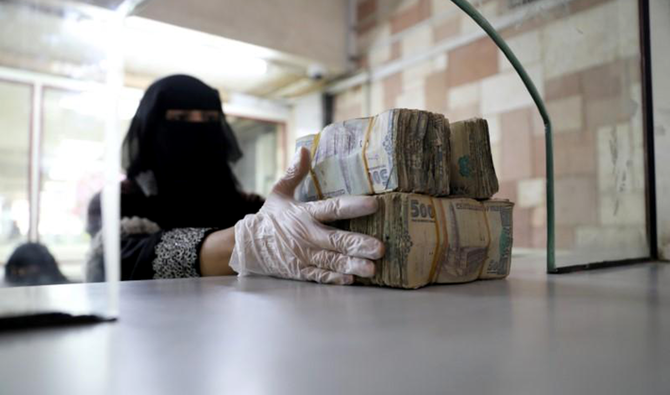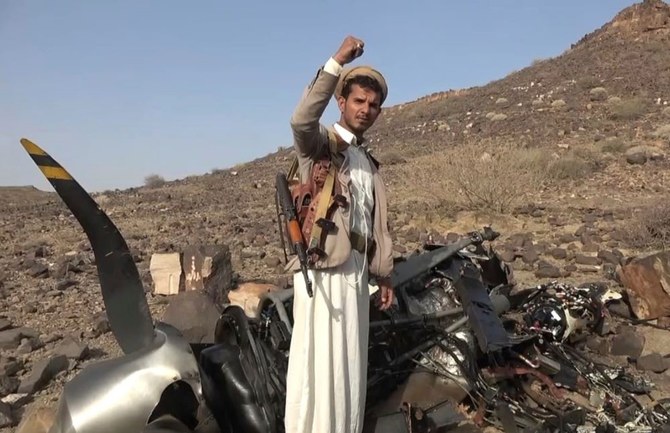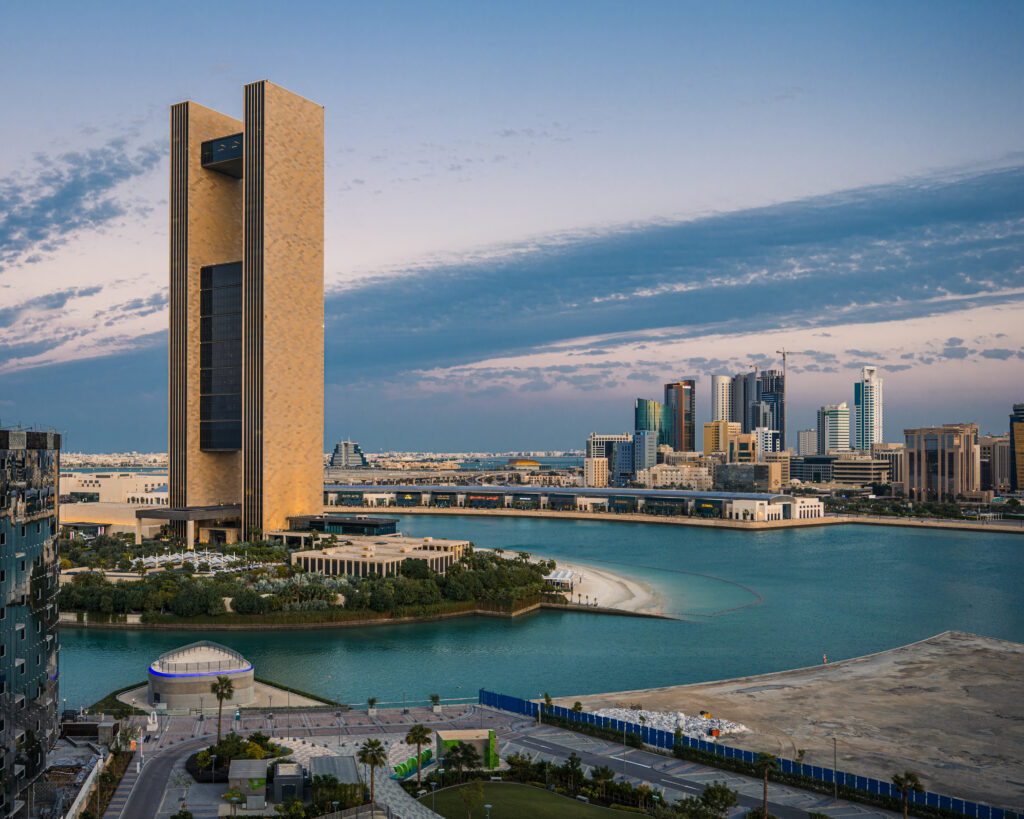AL-MUKALLA: Exchange companies in the government-controlled areas have suspended trading in the dollar and the other foreign currencies after the Yemeni riyal hit a record low, local officials and moneychangers said.
Yemeni riyal tumbled to 855 against the US dollar on Wednesday, breaking a previous record 850 in September. In city of Al-Mukalla, the capital of the southeastern province of Hadramout, moneychangers turned away people who wanted to exchange the Saudi riyal or the dollar, citing orders from their bosses to stop buying or selling foreign currencies.
In September, the Central Bank of Yemen (CBY) launched a crackdown on unauthorized exchange companies, banned the internal transfer network between exchange companies — known as hawala — and provided oil importers with dollars with the aim of curbing the fall of the currency. The measures helped the currency make a brief recovery to 800 against the dollar, before falling again this week.
When the Houthi stormed Sanaa in late 2014, the dollar was traded around 215 and began dropping sharply in 2016 when the internationally recognized government moved the central bank from Sanaa to Aden. Last week, economists cautioned that the country’s economy is teetering on the brink of total collapse due to competition between the government-controlled central bank in Aden and the Houthi-controlled bank in Sanaa and the rebels’ meddling in commercial banks in their territories.
The warning came after Houthi operatives stormed a major private bank in Sanaa, forcing it into suspending its operations across the country. Government economists argue that the Houthi coup, a halt in oil and gas exports, and the Sanaa-based central bank’s refusal to comply with the central bank in Aden are the main reasons behind the continuing fall of the currency.
Jamal Al-Kamel, the director of the central bank branch in the central city of Marib told state TV on Tuesday that the Houthis plundered the central bank’s foreign reserves when they stormed the capital.
“The (Houthi) coup was the last straw that brought down what was left of the economy,” Al-Kamel said, adding that hostilities between the government and separatists in Aden also play a role in undermining the recovery of the Yemeni economy.
Yemeni government and pro-independence Southern Transitional Council (STC) officials have traded accusations over the delays in announcing a new government.
A senior government official in Riyadh told Arab News on Wednesday that the STC is unwilling to put into place security and military arrangements under the Riyadh Agreement before forming the government, and that the Yemeni government had submitted its choices for the new cabinet.
An STC official who is currently in Riyadh said that the internationally recognized government officials are obstructing the formation of the new government by insisting on implementing the security and military arrangements before announcing the new government. “We agreed that that security and military side would be implemented after forming the new government,” the STC source said.
Both officials spoke on condition of anonymity because there were not authorized to brief reporters.
Under the power-sharing agreement signed in Riyadh a year ago, the Yemeni government and the STC agreed to pull out their military forces from contested areas in southern Yemen and move them to the battlefields. Yemeni political forces have missed many deadlines to form a new government and put into place all terms of the agreement. Last month, two Yemeni officials in Riyadh said that Maeen Abdul Malik Saeed, prime minister-designate, was close to announcing the formation of a new government as political parties handed over names for ministries.
The political wrangling over forming the government has been reflected in the military situation in the contested areas in the southern province of Abyan. Dozens of people have been killed in fierce fighting between the government and the STC since last week. Both sides accused each other of violating a truce agreed under Riyadh Agreement. An army commander said that their forces scored “limited” gains on the battlefields and 10 government soldiers were killed in the fighting. Mohammed Al-Naqeeb, a spokesperson for the STC forces in Abyan, said on Facebook that their forces pushed back an offensive by the government and killed more than 50 soldiers.






















